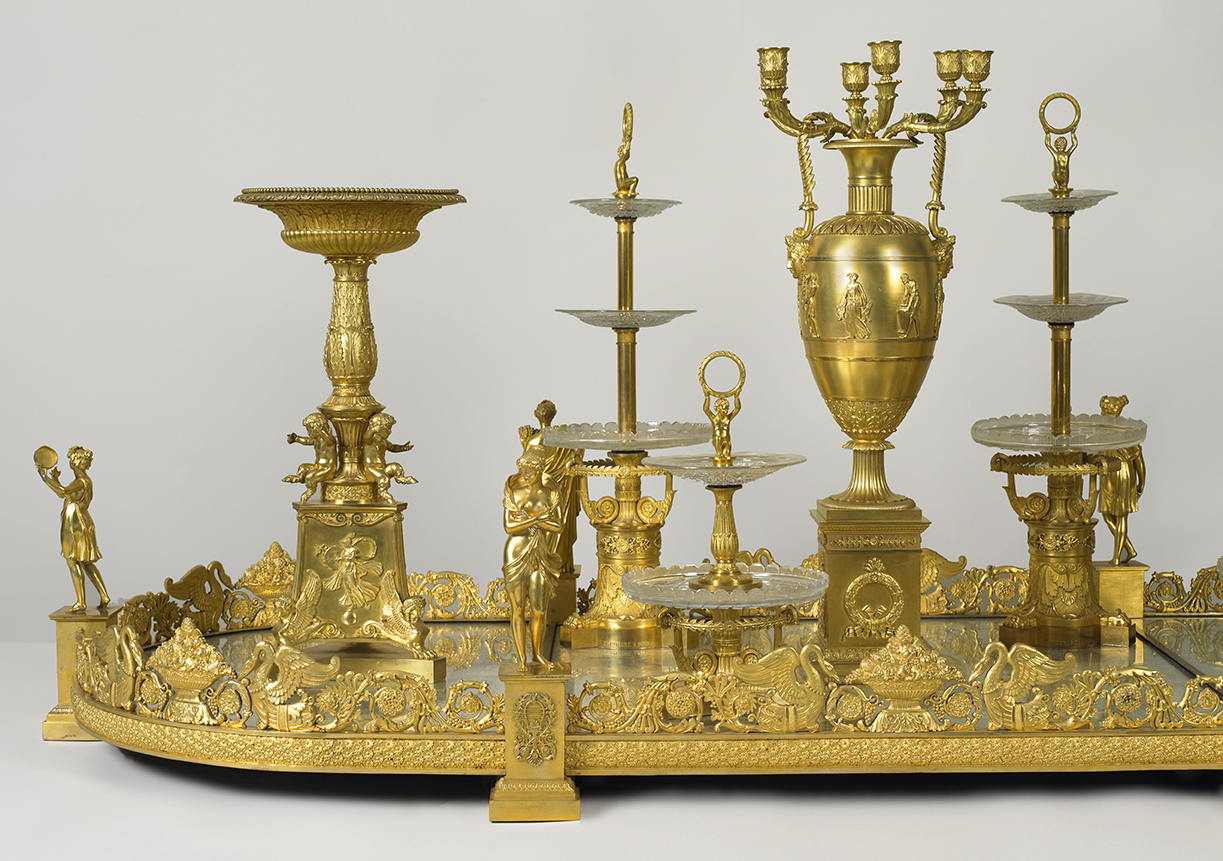tablescapes: designs for dining


Design has had an enduring impact on the rituals and customs of dining. The centerpiece for Tablescapes: Designs for Dining, which explores three distinct dining moments, is Cooper Hewitt’s magnificent surtout de table. On view for the first time in 30 years, this newly conserved masterpiece, designed by Pierre-Philippe Thomire for the stepson of Napoleon Bonaparte, Eugène de Beauharnais, exemplifies how dining in the highest levels of wealth and power in early 19th-century France was a theatrical performance, bringing architecture to the tabletop in an elaborate arrangement of vessels for food.
In the ensuing century, design for dining pivoted to embrace the casual lifestyle that emerged with industrialization and the rising middle class and will certainly change again in the future as contemporary design responds to emerging technologies and decreasing resources. To represent these shifts, the surtout de table is accompanied by an installation of Depression-era table linens designed by American textile designer Marguerita Mergentime, who blended bold colors, typography, and a fascination with American culture and history into her festive designs. And to suggest future directions for dining design, 2017 National Design Award winners Joe Doucet and Mary Ping were commissioned to envision a dining environment to come, one that is responsive to the needs of a rapidly changing world.
To accompany Tablescapes, an installation in the Spoon Family Gallery of Marguerita Mergentime’s iconic textile, Americana, designed for the 1939 World Fair in San Francisco. Alternating bold Futura lettering with cursive writing, the entirely text-based design encompasses American phrases, organizations, foods, points of interest, and people in an all-over pattern. The textile is a red, white, and blue typographical banner of American values designed for a nation on the cusp of World War II.
Tablescapes: Designs for Dining is made possible by Anonymous. Conservation of the surtout de table is made possible by the Smithsonian Women’s Committee. In-kind support is provided by Shapeways and The Abadi Group.